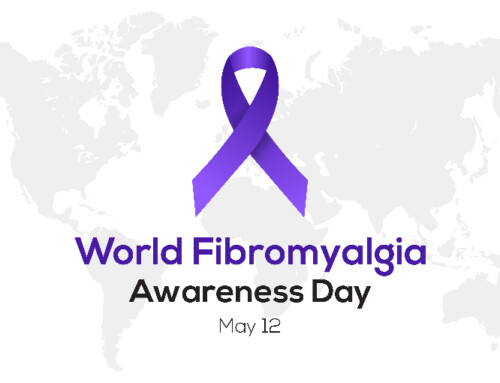5 Ways Endometriosis Can Affect Your Mental Health
If you’ve been diagnosed with endometriosis, you may feel completely alone. Your doctors are minimizing your symptoms or worse – not even taking you seriously.
Your friends and family just don’t understand what you’re going through.
If you’re experiencing symptoms but aren’t sure if you have endometriosis, you might feel a roller coaster of emotions and even wonder if endometriosis is affecting your mental health.
It probably is.
It’s no coincidence that you’re noticing a correlation between your symptoms and your mood.
Despite providers dismissing your symptoms or not giving you the right tests, your pain is real.
Your anxiety is real.
After all, your mind and body are connected so there’s no question your physical health impacts your mental health.
If you have endometriosis or suspect you have it, keep reading.
Today we’re going to talk about the ways endometriosis affects your mental health and what you can do to get the support you need.
What is Endometriosis?
First, we’ll quickly discuss what endometriosis is and the most common symptoms.
Endometriosis is when endometrial-like tissues grow on organs outside of the uterus. This growth can be on your ovaries, fallopian tubes, bladder, the lining of the pelvis, and even the intestines.1,2 This tissue has been found on nearly every major organ in the body, so everyone’s experience is a little bit different.
If you have endometriosis (or think you have it), you probably feel like your healthcare providers aren’t taking you seriously.
You’re not alone. Many women feel this way.
Unfortunately there are still myths, misconceptions, and misunderstandings about endometriosis so it takes a woman an average of 7.5 years to get an accurate diagnosis.4
Because of this lag in getting an accurate diagnosis, it’s crucial that you become your best healthcare advocate.
Symptoms of endometriosis include:1,3
- Intense, painful periods
- Pain with sex
- Abdominal pain and back pain
- Excessive bleeding
- Infertility
- Pain with ovulation
- Brain fog
- Chronic pelvic pain
No two people have the same experience with endometriosis. This list of symptoms is by no means all-inclusive or comprehensive. If you’re experiencing any of these symptoms and are concerned you may have endometriosis, talk to a trusted healthcare provider right away.
It’s important to get the support you need as it doesn’t take long for endometriosis to affect your mental health.
Here are some common reasons endometriosis affects a woman’s mental health.
How Endometriosis Affects Your Mental Health
Just looking at the symptoms above, it’s obvious that endometriosis can affect your mental health. Let’s take a deeper look at the most common reasons endometriosis affects mental health and why.
Chronic pain:
Because of inflammation and endometrial-like tissues growing in places it doesn’t belong, endometriosis causes severe and chronic pain which is often dismissed by people as “regular” pain associated with your period.
But pain associated with endometriosis is not the same. When you have endometriosis, the pain you have with your period is much more intense. Because the tissue is sensitive to hormones, pain can increase significantly during your period and cause more growth of the tissue.3
Pain with endometriosis can even become chronic. The pelvic area is the most common for chronic pain. It can be so debilitating that you have difficulty getting through your daily activities.
When it impacts your everyday life it’s much more likely to cause anxiety and depression.
The research even proves this to be true. An analysis of over 24 studies shows a higher prevalence of depression among women with endometriosis compared to healthy women, mostly related to chronic pelvic pain.5
2. Stigma, Myths, and Misconceptions
If you have endometriosis you know there is a significant lack of understanding about it. Because it’s a poorly understood condition, it’s easy to feel stigmatized and isolated.
Your family, friends, and doctors just expect you to push through your symptoms and not complain. However, they don’t realize that you already are pushing through – each and every day. When you’ve reached your breaking point and need a break or to cancel plans, they don’t understand.
The lack of validation and support from others can lead to feelings of depression, anxiety, loneliness, and even low self-esteem.
3. Impact on relationships
Because of the stigma, myths, and misconceptions described above, endometriosis can have a big impact on your relationships with others. It’s exhausting to explain your symptoms to your friends, family, and even your own doctors when they don’t understand.
The chronic pain and infertility associated with endometriosis can put a strain on relationships. Endometriosis can cause you to call out sick to work, or cancel plans with friends. After a while, just simply dealing with pain all the time takes a toll on your mental health.
4. Infertility
One of the most devastating effects that endometriosis can have on a person is infertility. Infertility is one aspect of endometriosis that significantly affects your mental health.
For women who desperately want to have children of their own, infertility causes an enormous amount of stress, anxiety, and depression. Infertility can cause a strain on marriages and long-term relationships, making dealing with this condition even worse.
Just going through the process of seeing infertility specialists and coming up with a treatment plan can be overwhelming, time-consuming, and stressful.
For women wondering if endometriosis will eventually cause infertility for them, the wondering and waiting can be agonizing. On top of trying to manage chronic pain, the added stress of infertility makes the mental health impact endometriosis has on you that much worse.
5. Financial burden
The United States has an extremely high cost of healthcare. In 2021 it was estimated that healthcare costs average about $12,000 per person.6
Since it takes an average of 7.5 years for a woman to be diagnosed, that’s a lot of doctor appointments and testing!
For many women, healthcare expenses add up from doctors’ appointments, medical treatments, surgeries, medications, and even time off work.
Just the financial burden alone can contribute to feelings of stress, anxiety, and depression.
Endometriosis affects mental health: get the help and support you deserve
When you have a chronic health condition like endometriosis, getting help and support from someone who understands is crucial. Endometriosis affects your mental health and you should get support from people who understand.
Getting help and support when you have endometriosis is especially important when so many people don’t understand how or why it impacts you so severely.
Marriage Help Colorado now helps women with endometriosis and chronic pain.
Get help and support from someone who:
- Understands endometriosis
- Takes your symptoms seriously
- Understands the critical impact endometriosis has on your mental health
- Will meet you where you’re at and develop a personalized plan for you
We offer safe, secure, online therapy for women with endometriosis who need support with their physical and mental health.
When you work with us you’ll….
- Feel empowered to advocate for yourself
- Get the tools you need to be successful in managing your condition
- Learn to develop a new relationship with pain
- Get the support you need to navigate your relationships
Endometriosis and mental health go hand in hand. If endometriosis affects your mental health and you’re looking for support, fill out our contact form.
We’ll get back to you and get to know more about you and match you with the right therapist to meet your needs.
References
- Mayo Clinic. Endometriosis.
- Treating the pain of endometriosis. Harvard Health Publishing. 2020.
- Cleveland Clinic. Endometriosis. 2022.
- The Importance of Mental Health Support While Managing Endometriosis. Endofound.org. 2021.
- The Complex Relationship Between Endometriosis and Depression. MGH Center for Women’s Mental Health. 2019.
- AMA. Trends in Healthcare Spending. 2023.



